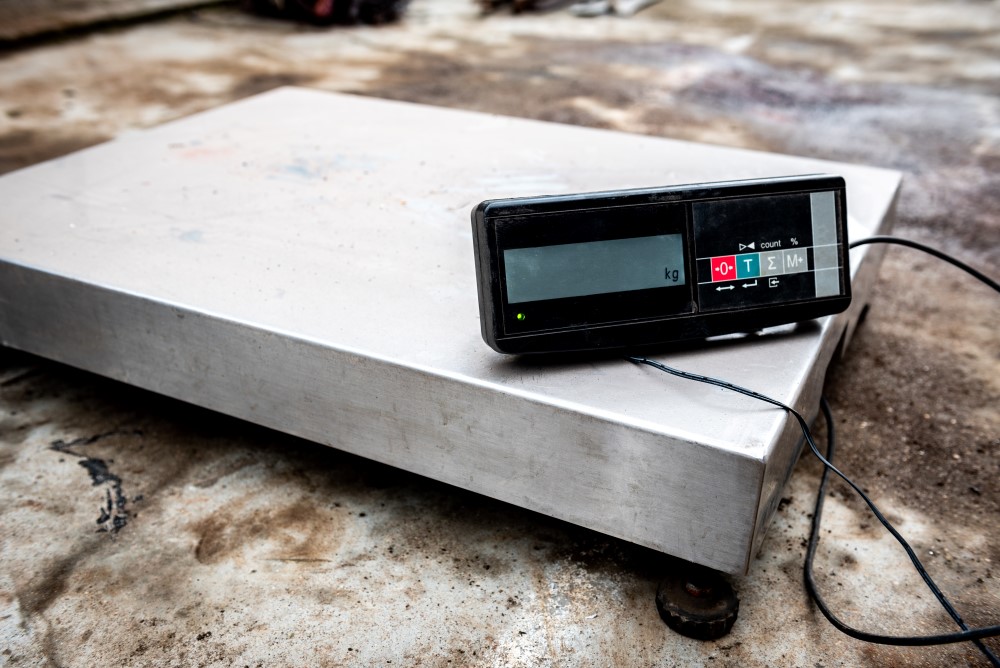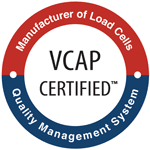 February 26, 2025
February 26, 2025
Whether you’re in manufacturing, OEM, mining, construction or any sector that uses load cells, accuracy of your equipment is critical. That’s where load cell calibration services come in.
Regular calibration maintains not only the integrity of your measurements but also safety, compliance, and efficiency.
Let’s go over why regular load cell calibration is important, how it affects your operation and why Massload recommends annual recalibration to get your systems running at peak performance.
Why Load Cell Calibration Matters
Load cells are the backbone of weighing systems, converting force into electrical signals. Over time, factors like wear and tear, environmental conditions and frequent use can cause load cells to drift from their original calibration. This drift can lead to inaccurate readings which can be catastrophic:
- Safety Risks: In industries like aerospace or construction, inaccurate measurements can compromise structural integrity and safety.
- Financial Losses: Inaccurate weighing can lead to product giveaway, underfilling or overfilling, which can affect your bottom line.
- Compliance Issues: Many industries are regulated. Non-compliance due to inaccurate measurements can result in fines or legal action.
Regular calibration ensures your load cells are accurate, reliable and compliant to industry standards.
The Role of Load Cell Calibration Services
Professional load cell calibration services are designed to test and adjust your equipment to meet exacting standards. These services involve:
- Inspection: A thorough examination of the load cell to check for physical damage or wear.
- Testing: Using specialized load cell calibration equipment, technicians apply known weights or forces to measure the load cell’s response.
- Adjustment: If discrepancies are found, the load cell is adjusted to restore accuracy.
- Certification: After calibration, a certificate is issued to document the process and prove compliance.
Investing in good quality calibration equipment and services is vital to maintain accuracy and the life of your load cells.
For more on certification and traceability in calibration read our article on The Importance of Traceability and Certification in Load Cell Calibration.
What is Load Cell Calibration Equipment?
Load cell calibration equipment refers to specialized tools and devices used to test, adjust and verify the accuracy of load cells. Load cells are the heart of your weighing system and their accuracy can degrade over time due to mechanical stress, environmental conditions or regular wear and tear. Calibration equipment ensures load cells provide precise and reliable measurements by comparing their output to known standards.
Components of Load Cell Calibration Equipment
- Calibration Weights: Precisely measured weights used to apply known forces to the load cell.
- Force Calibrators: Devices that generate controlled forces to test load cells in different conditions.
- Signal Conditioners: Equipment that interprets and amplifies the electrical signals from the load cell for accurate measurement.
- Data Acquisition Systems: Tools that collect and analyze data from the load cell during calibration.
- Software: Programs to monitor, adjust and document calibration results.
How Does Load Cell Calibration Equipment Work?
The calibration process involves applying known forces to the load cell and comparing its output to the expected values. Here’s a step by step breakdown of how calibration equipment works:
1. Preparation
- The load cell is mounted or installed in a calibration setup.
- The calibration equipment is connected to the load cell to measure its output signals.
2. Application of Known Forces
- Calibration weights or force calibrators are used to apply precise forces to the load cell. For example, a 100 kg weight might be placed on the load cell to test its response.
- The load cell converts this force into an electrical signal which is then measured by the calibration equipment.
3. Measurement and Comparison
- The calibration equipment records the load cell’s output signal and compares it to the expected value based on the applied force.
- Any discrepancies between the measured and expected values are noted.
4. Adjustment
- If the load cell’s output is out of range, adjustments are made to correct its performance.* This may involve adjusting the load cell’s internal components or re-calibrating its settings.
5. Verification and Certificate
- After adjustments, the load cell is re-tested to meet accuracy standards.
- A calibration certificate is issued, documenting the process and compliance to industry standards.
How Often Should Load Cells Be Calibrated
At Massload, we recommend annual recalibration for all load cells.
Here’s why:
- Prevent Drift: Over time, even the most robust load cells can drift. Annual recalibration catches and corrects these deviations before they affect your operation.
- Extend Equipment Life: Regular calibration identifies potential issues early, reducing the risk of costly repairs or replacements.
- Ensure Consistency: Consistent calibration ensures your measurements remain reliable year after year.
- Meet Industry Standards: Many industries require annual calibration to comply with regulations.
When you recalibrate regularly, you can avoid downtime, reduce costs and get the highest level of accuracy in your weighing systems.
Massload: Precision Calibration for Your Peace of Mind
At Massload, we provide top-quality load cell calibration services and state-of-the-art load cell calibration equipment. Our team of experts will help you maintain the accuracy and reliability of your weighing systems. Here’s what sets us apart:
- Advanced Equipment: We use the latest calibration technology for precise and reliable results.
- Experienced Technicians: Our team has years of experience in load cell calibration across multiple industries.
- Custom Solutions: We understand every operation is unique. That’s why we offer custom calibration services to suit your needs.
- Certified Compliance: Our calibration services come with full documentation to prove compliance to industry standards.
Don’t wait until inaccuracies disrupt your operation. Load cell calibration is a small investment that pays off in safety, compliance and efficiency.
Ready to book your calibration service? Contact Massload today to learn more about our calibration services and equipment.
By calibrating regularly, you’re not just protecting your equipment, you’re safeguarding your operation, your reputation and your bottom line.


